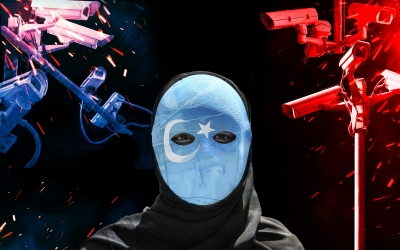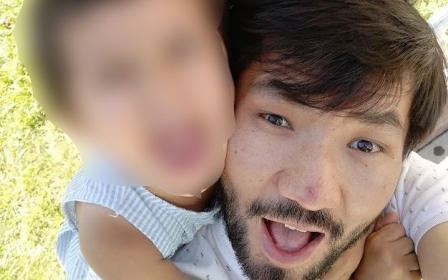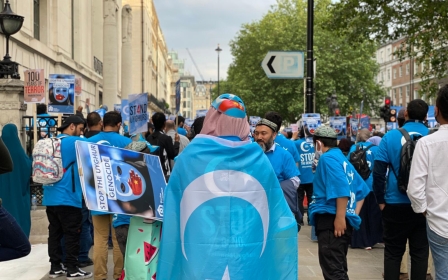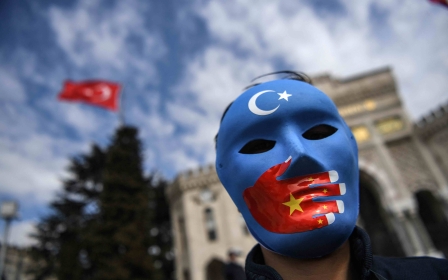Morocco: Rights groups condemn approval of extradition of Uighur activist to China
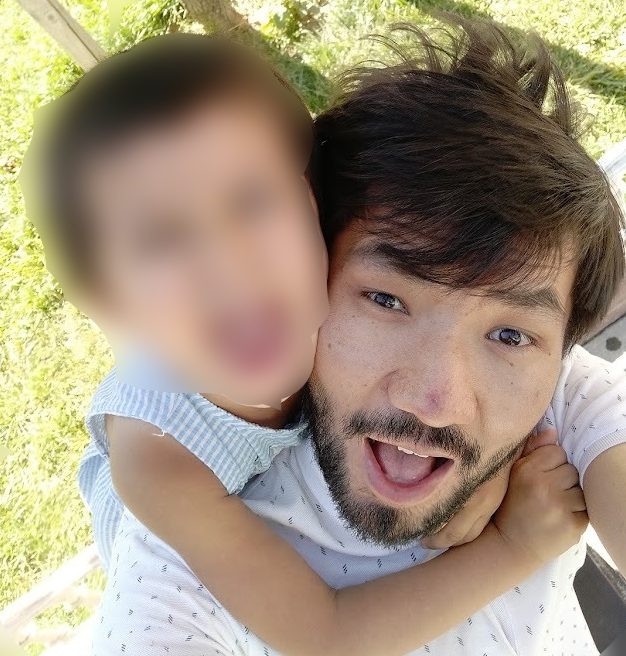
Human rights experts and groups have condemned Morocco for agreeing to extradite a Uighur man to China after Beijing lodged a warrant for his arrest through Interpol.
Yidiresi Aishan, a 34-year-old father of three with residency status in Turkey, was detained by Moroccan police in Rabat after fleeing to the North African country.
Aishan, also known as Idris Hasan, was detained upon entry in July, after China requested his arrest for "terrorist acts committed in 2017" and for allegedly belonging to a terrorist group.
Aishan denied the claims, with Uighur activists and rights groups fearing he could be sent to an internment camp if taken to China.
It remains unclear why Morocco approved Aishan's extradition after Interpol cancelled the "red notice" arrest warrant issued against him. Interpol cancelled the warrant in August, after its general secretariat received new information about Aishan.
Miloud Kandil, Aishan's lawyer in Morocco, said they are awaiting the wording of the judgment after a Moroccan court approved the decision on Wednesday.
"The judiciary confirmed yesterday that my client would be extradited. We don't yet have the text of the judgment, but psychologically it's very hard for him," said Kandil.
On Thursday, UN human rights experts called on Morocco to halt Aishan's extradition, saying there was a "credible risk of grave violations of his human rights".
Amnesty International also condemned the ruling and said his "imminent extradition is equivalent to refoulment" - the forcible return of refugees or asylum seekers to a country where they could face persecution.
Multiple arrests
Between 2016 and 2018, Aishan was arrested three times by Turkey and held in a Turkish detention centre for several months.
Safeguard Defenders, an NGO supporting Uighurs and other Chinese dissidents, said Aishan feared being deported to China from Turkey.
In a statement posted on its website, Safeguard Defenders said Aishan was interrogated for half an hour at Istanbul airport before leaving for Casablanca in July. Turkish police told him that he would "not be able to come back" if he left.
Upon landing in Morocco, Aishan was detained and transferred to Tiflet detention centre, from where he called his wife on 24 July, four days after his arrest.
His fellow activist and friend Abduweli Ayup said Aishan would regularly volunteer to help Uighurs in the diaspora and helped set up several newspapers for the Uighur community. He believes Aishan's arrest is part of China's ongoing crackdown against Uighur activists abroad.
"Aishan has helped Uighurs for several years, and we have worked together on various projects, including publishing a book on Uighur writers arrested in China," Ayup told Middle East Eye.
"He has been arrested several times in Istanbul, but that is related to his immigration status and China's arrest warrant against him. It was because of this reason he left Turkey and went to Morocco."
The exact terrorism charges against Aishan remain unclear. However, earlier this year Morocco ratified an extradition treaty with China, first signed in 2017.
Safeguard Defenders said it had appealed to the Moroccan ambassadors in Washington and Brussels not to deport Aishan. The NGO said that it had secured legal representation for the Uighur activist, after several lawyers refused to take the case.
Human rights groups have condemned China for its mistreatment of the predominantly Muslim Uighur minority group, hundreds of thousands of whom are detained in camps across China's Xinjiang province. Beijing calls the camps "vocational training schools" and says they have been set up to tackle "religious extremism".
Middle East Eye delivers independent and unrivalled coverage and analysis of the Middle East, North Africa and beyond. To learn more about republishing this content and the associated fees, please fill out this form. More about MEE can be found here.


